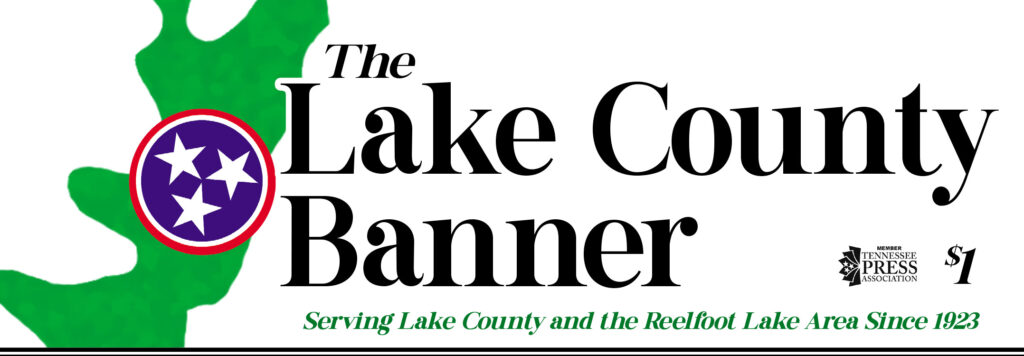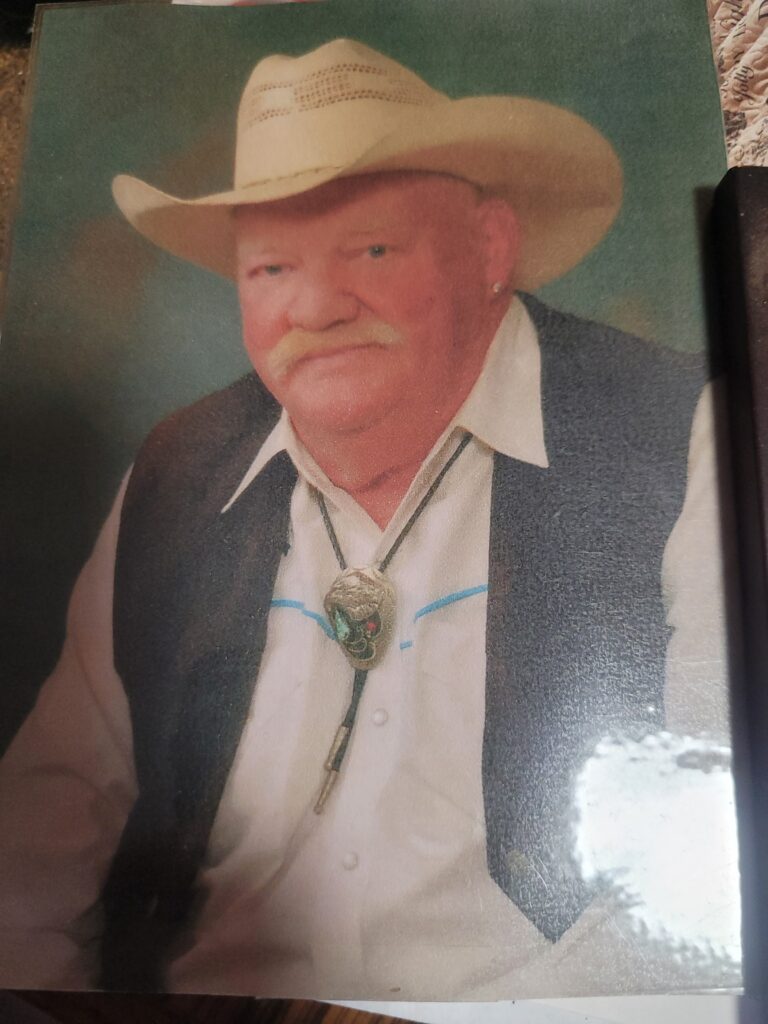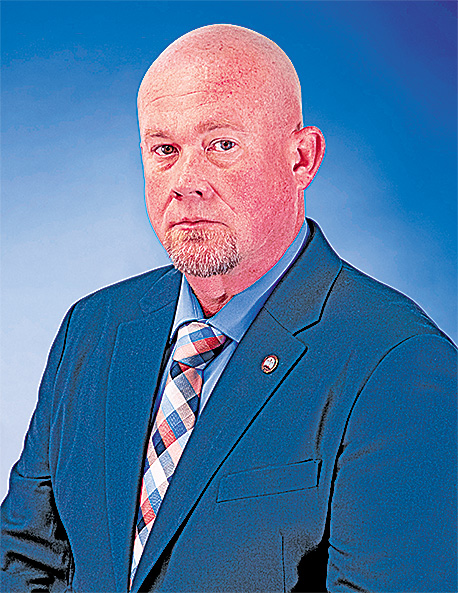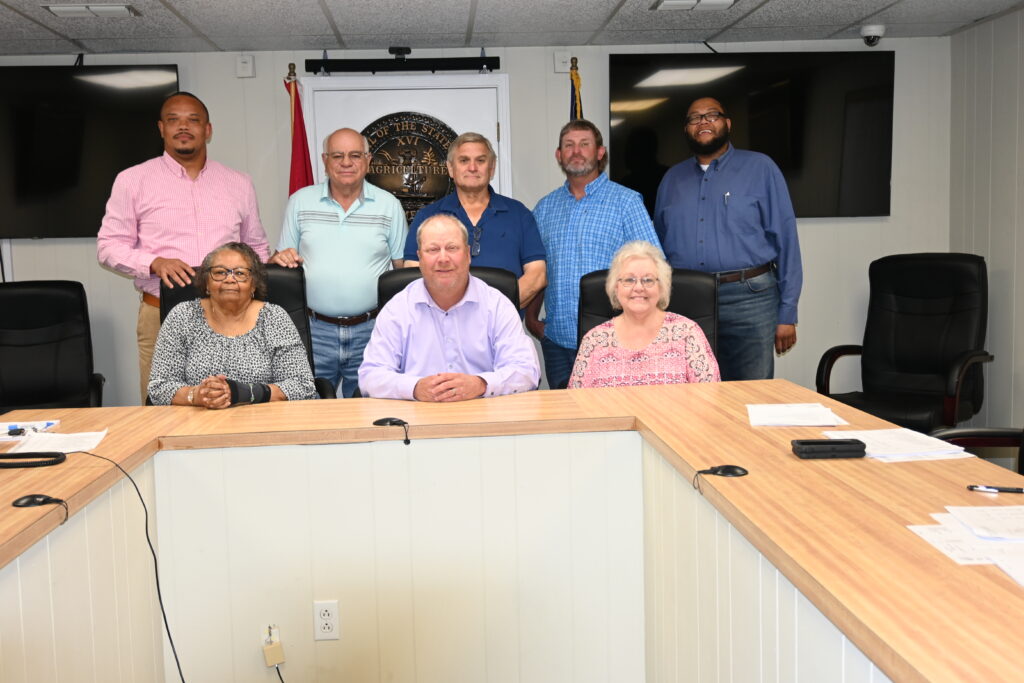
I am now a resident of Ridgely, but I was born and raised in old Hathaway. I lived very near the river. It was always interesting to watch the tow boats coming up and down the river.
In the fall of the year there would be the “show boats”.
They would land at Reelfoot. This was a big event in our lives. The Taylor Family lived at the boat landing and Talmadge Taylor would get on a horse and go around to all the homes to tell the people that the Show Boat and landed.
We would all get in wagons, there were no cars in those days, and we, that is the young people, would pile into wagons and go to Reelfoot for the show.
There were a variety of shows from classical to comedy. There were live stage shows. There would also be a band to play during the show.
I never went to one of the boats that had dancing.
Other entertainment that we enjoyed were singing contest.
We had singing schools. I remember that a Mr. Palmer was one of our singing teachers, he was an excellent teacher. I thought he was the best we ever had. He lived over in the hills.
We would go to Missouri, places like Wardell or Portageville or over to the schools in the hills for singing contest. We would travel in wagons or buggies. We would cross the river on a ferry boar at Caruthersville.
Hathaway always brought home the “banner” for the best singing group.
In those days we did all of our shopping at Caruthersville.
I knew Caruthersville better than I did the towns over there because it was much easier and quicker to get over there. Everything we used that came from a store that wasn’t carried in our village stores, was bought over at Caruthersville.
As for social life, we had play parties. One place in particular that we enjoyed going to was across the “shoot” from where we lived. There was a family living over there that was really musical. They played different musical instruments and all of them could sing real well even before we went to singing school.
The “shoot” was always filled with water, but down at one end it was filled in and you could cross over. It was like an Island over there, several families lived over across the shoot. The Champions lived in the first house, the next two were occupied by brothers, Orvill and Jon Meyers, Claude Gregory, a Darnall Family, Bird Powell, he was a brother to the Powell that owned the ferry.
I think there is still a big cottonwood tree standing at the foot of where the shoot was.
It is on the mainland now, the shoot has filled in over the years, but I have heard my brother say that he could remember when the cottonwood tree was on the bank of the main river and boats would tie up at the tree. Its been 50 years ago, but I can still remember the ’37 flood like it was yesterday. Everything in Reelfoot, Pecks Mill, and Hathaway was flooded. My house was ruined, it washed down off the blocks. All the buildings in that part of the country were built on high blocks, even the smoke house.
The barns were all built on high mounds.
We killed hogs and put up our winter supply of meat in big wooden boxes, well covered with salt, in the smoke house. It was called the “smoke” house because after the meat had been in salt from 4 to 6 weeks, depending on the individual, it was taken up, washed off in kettles of warm water, dried off and hung up. Then on dump days when the smoke would not rise too fast, a fire was built in a stove in the smoke house using hickory and sassafras woof, that had not been dried out. You didn’t want a blazing fire, just one that filled the room with smoke. There would not be a stove pipe to the stove, you wanted to smoke the meat slowly over several days- this was part of the curing process. Each man had his own idea about what was rubbed into the meat during the time it was being smoked. Some used brown sugar or molasses and black pepper. Any way the meat was left hanging in the smoke house until ready to use. Well, that Saturday when we killed hogs and salted the meat down, there was no sign or rumor of a water coming out. We never even thought of one.
Then on Monday my brother came and told my husband he wanted him to help get his corn out before the water got it. My husband said “Awe, there’s no water in sight, You don’t know what you are talking about.” My brother said, “Well, it’s coming.”
One week after we killed hogs the water was so high we realized we had to get out.
My husband and Buck Carlton got in a skiff and rode over to Caruthersville to get the ferry boat to come get us out. When they got there the ferry boat had gone down to Arkansas to help evacuate families there and it was about 10 o’clock that night before it got back to us. By that time water was already coming in the floor of the house. My husband had an aunt, Aunt Annie Leake, living in Caruthersville and her husband was waiting for us at the levee where the boat had to land. The next day, Sunday, the boat came back to move our stock out.
We lived with Aunt Annie and Uncle Monroe while the water was out. That was the only time we ever had to move out. In 1927 the water didn’t get in our house.
I married Jessie Bargery in 1925. He was living with Uncle Monroe then so we lived with them a while. They were living at Hathaway then. We moved out to ourselves and started farming. We raised cotton and corn. While we were working with mules we had to have plenty of corn for feed. You hear a lot about how things were during the depression years. It didn’t hurt us too much. We didn’t get much for our crops, but that didn’t keep us from working and doing the best we could. We had always lived within our income. Lots of people are under the impression that the farmers got help, but in the long run the farmers paid for it. I remember my husband and some men talking about the programs available for them to sign up for and I told my husband then that they needed to be careful about government programs.
“You are putting a rope around your children’s neck that will strangle them to death.” We had a garden, chickens, our meat, milk, butter, vegetables I had canned. We had plenty to eat.
When the depression hit we had money in a bank in Caruthersville and lost it all. We also had money in a bank here. It closed for a while nut we got all of it back.
Our school in Hathaway was a one room building, one teacher.
I have a daughter, Vonnell, living in California and she has a daughter, Sherron. Vonnell went to the one room school in Hathaway for seven years and had the same teacher all seven years. She said she told her husband, “I learned more in 7 years in the old one room school than our daughter has learned in grammar school, 4 years of high school and 4 years of college.”
My nephew lives in Illinois. Not too long ago my daughter and my nephew were both visiting here and they were talking about their school days in Hathaway, and about the teacher they had there. She had a rough name, she was Pauline Joyce then, later she married Russell Bargery. Anyway, my nephew said he learned what a verb was before he learned his A B C’s.
He was just starting to school and there was a boy in an upper grade that was a slow learner. Miss Pauline was trying to teach the boy what a verb was and she would say “remember, a verb is something that denotes action, hop-skip-jump and run, hop-skip-jump and run.”
My nephew said that stuck with hum and he never forgot it, just listening to her teaching the older boy.
When my daughter started the school out here at Ridgely in the eighth grade, a girl that was in her room, later said that she felt so sorry for Vonnell when she found out she had only gone to a one room country school, but it didn’t take long to find out Vonnell didn’t need anyone’s sympathy.
I remember that Chip Carlton and my brother-in-law Johnny Bargery were in World War I.
They both left on the train from the Ridgely depot. The railroad had come through Ridgely a few years before, but we never came here. When the community found out they were leaving on the train, several buggies with women in them and a wagon with men and children, all came from down in number sic to see Johnny and Chip off to war.
I also had nephews in World War II. It seems to me that people in a close knit community survive the things that happen better than people living in the city.
During World War II everything was rationed, but we made it and were not hurt too much.
It pays to have friends. I don’t mean by that that we bought anything in the “Black Market” or anything like that, but we had always traded at the same place and had always paid our debts and they saw that we got what we needed. Gasoline was bought with ration stamps, tires were bought only when you were issued a special certificate after proving it was needed for a farm vehicle or something connected
with the war effort. There was a boy in my Sunday School Class, one that I taught at the Hathaway Baptist Church, that was the first person to sign up for the draft in Lake County, the first person called from Lake County, and was in the first group to go overseas. He and a boy from Atoka, TN fired the first shots that were fired when they landed. He was in General Patton’s army. His name was Raymond Meyers. There was only one boy out of my Sunday School Class that got killed during the war. He was in the South Pacific. His name was Mack Pearson. Alpharetta Turner Bargery is the daughter of Sion Turner who was born in North Carolina 09 Jan. 1848 and died at Hathaway 12 Sept. 1912. He came to Hathaway as a young man. His first wife was Sarah “Sally” Skipper, by whom he had six children (all born in Hathaway) H. Marian b. ca 1873 died before 1900.; Cora L. Turner born ca 1877, died young; James William “Will” Turner born 23 Sept. 1879, died 5 Oct. 1952; Harris Turner born 12 April 1883, died 1 Nov. 1958; Thomas Cleve Turner born 1 May 1885, died 21 April 1951; and Walter Turner born May 1889 died in Sept. 1916.
Following the death of his first wife, Mr. Turner married Julia Davis and by her he had one child, Alpharetta “Alpha” Turner born 14 Aug. 1903.
She married Jessie Thurman Bargery, born 21 July 1901 and died 26 Sept. 1966. He was the son of John Harry Bargery and Dora Leake. His father was born in England but came to USA as a baby.
Jessie and Alpha Turner Bargery had five children: Vonnell, Sion Thurman, who died at age two, Kenneth, Lynnwood and Tamara, who died 5 Feb. 1982. Alpha reared Tamara’s son Samuel Kyle Presley. For further memories of Alpha Bargery see the 1983/84 yearbook of the Lake County Historical Society article on page 9 through 25 entitled “Number Six.”





